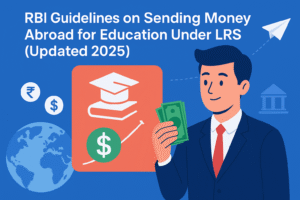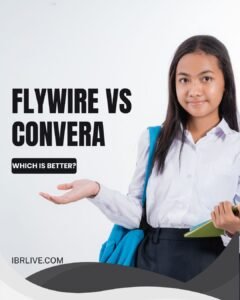Konkona Biswas
08/23/2025
Getting an admission offer from your dream university abroad is a huge step—but the journey isn’t complete until you’ve successfully cleared your visa interview. For many Indian students, this is the most nerve-wracking stage. The fear of rejection, uncertainty about what to say, and tight documentation requirements can feel overwhelming.
Getting an admission offer from your dream university abroad is a huge step—but the journey isn’t complete until you’ve successfully cleared your visa interview. For many Indian students, this is the most nerve-wracking stage. The fear of rejection, uncertainty about what to say, and tight documentation requirements can feel overwhelming.
But here’s the truth: most students who prepare well, answer honestly, and present strong financial and academic documentation clear the interview in one go.
This blog walks you through student visa interview questions and answers for Indian students, tailored for Indian applicants planning to study abroad. Whether you are applying for an F1 student visa, British student visa, or any other student visa for Indian students, this guide is your trusted prep partner.
Why Is the Visa Interview So Important?
The visa interview is your chance to:
-
Prove you’re a genuine student with academic intent
-
Show financial readiness to fund your studies
-
Reassure that you will follow the visa norms (especially regarding return or work rights)
For students applying for the F 1 visa or any other study visa application route, this step is critical. The consular officer will evaluate your clarity, financial documentation, and sincerity.
Common Student Visa Interview Mistakes To Avoid
If you want to avoid rejection, knowing the common student visa interview mistakes to avoid can save you time and stress. Preparation is key, and these model questions and answers can guide you.
1. Why do you want to study in this country?
Model Answer:
“I want to study in the US because it offers globally recognized degrees, excellent research facilities, and exposure to diverse cultures. The course content in my field—Artificial Intelligence—is highly advanced and relevant to my long-term career goals.”
Tip: For UK, Canada, or Australia, always link your answer to the country’s education system, global rankings, or your personal career goals.
2. Why this university?
Model Answer:
“I chose the University of Toronto because of its strong public health program and impactful research. It also has a high graduate employability rate.”
Tip: Mention course modules, professors, alumni networks, or the university’s international standing.
3. Who is sponsoring your education?
Model Answer:
“My parents are sponsoring my education. I’ve included their bank statements, IT returns, and an affidavit of support with my documents.”
Tip: If using an education loan, mention the sanction letter, bank name, and loan amount.
4. Do you plan to work during or after your studies?
Model Answer for F1 Visa:
“I’m aware of the visa rules. I may participate in CPT or OPT, but my main focus will remain on academics.”
Note: For the UK or Australia, you can mention PSW or post-study work rights, but don’t focus too much on long-term stay unless your course leads to PR.
5. What are your plans after graduation?
Model Answer:
“I plan to return to India and work in the consulting field. The international experience I gain will give me an edge in firms like Deloitte or EY.”
6. What does your course curriculum include?
Model Answer:
“My MBA in Marketing covers consumer behavior, brand strategy, and digital marketing. I’m particularly interested in the final semester internship and live project.”
7. Why not study this course in India?
Model Answer:
“While India offers good programs, I chose this country for its hands-on curriculum, international exposure, and better infrastructure for my area of interest.”
8. Where will you stay?
Model Answer:
“I’ve confirmed my on-campus accommodation. It’s close to academic buildings and comes with all necessary facilities.”
Mandatory Documents to Carry
-
Passport & DS-160 / visa application confirmation
-
Offer letter from the university
-
Financial documents (bank statements, loan sanction, ITRs)
-
Academic records (transcripts, certificates)
-
Visa fee receipt
-
SEVIS payment proof (for F 1 student visa applicants)
Expert Tips by Study Visa Consultants
-
Practice mock interviews
-
Dress formally and arrive early
-
Keep answers short, clear, and confident
-
Don’t memorize—just understand your answers
-
Avoid contradictions between your answers and documents
Common Mistakes to Avoid
Many most asked visa questions in 2025 revolve around finances, intent, and course choice, but these are the traps you should steer clear of:
-
Claiming you want to settle abroad during F 1 visa interview
-
Inconsistent financial details
-
Not knowing your course content
-
Poor body language or lack of eye contact
-
Documents not matching your verbal answers
Sample Dialogue (F1 Visa)
Officer: Why do you want to study in the US?
You: I want to specialize in machine learning, and the US offers advanced coursework in this area. My university ranks among the top 20 globally and has strong industry partnerships.
Officer: Who is funding your studies?
You: My mother, who is a government employee. I’ve provided her financial documents and savings proof.
Final Thoughts
Clearing a student visa interview isn’t about perfection—it’s about clarity, confidence, and genuine intent. Be prepared, answer truthfully, and show that you’re committed to your academic path.
Whether you’re looking for student visa interview questions and answers for Indian students, want to avoid the common student visa interview mistakes to avoid, or simply want to prepare for the most asked visa questions in 2025, this guide covers it all.
Ready to Transfer Tuition Fees Abroad?
As your visa gets approved, make sure your international money transfer is smooth, swift, and compliant with RBI’s LRS.
Use IBRLIVE—India’s trusted platform for overseas education payments, tuition fee transfers, and forex advisory for students.


